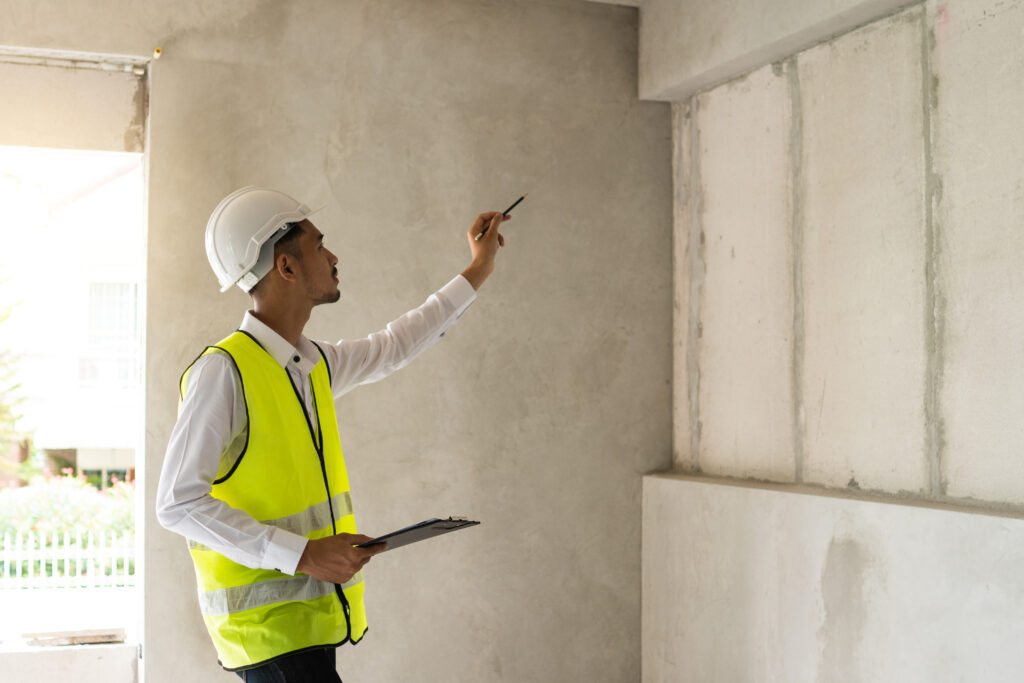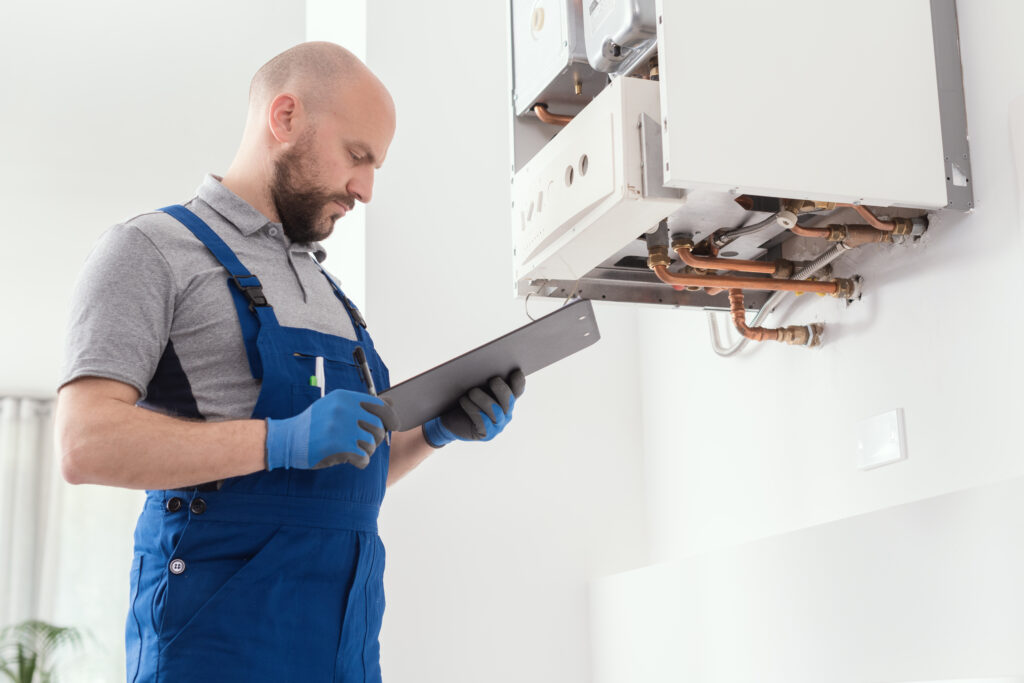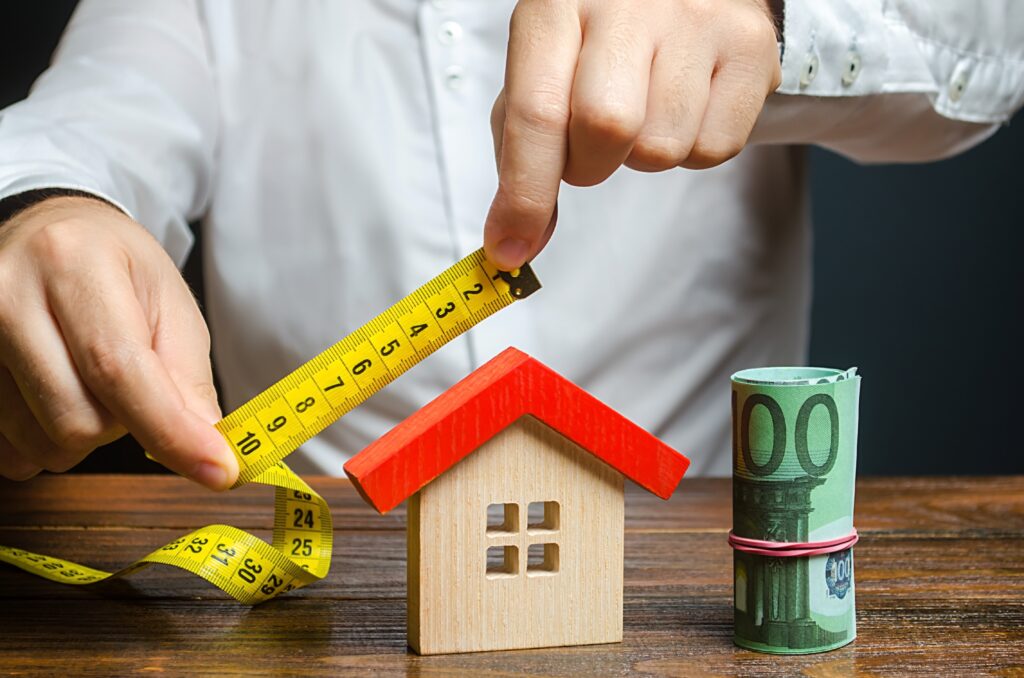The Importance of Home Inspections in Buying Your Dream Home
Buying your dream home is one of the most exciting experiences you will ever have, but it can also be a nerve-wracking process.
One important factor to not overlook is the home inspection. A home inspection is essential for ensuring the condition of the property and can be the difference between a happy homebuying experience and a disappointing one.
In this blog post, we will explore the importance of home inspections in the homebuying process and provide helpful tips for getting the most out of the inspection. So read on!
What are Home Inspections?

Home inspections are an integral part of the homebuying process.
A home inspection is a thorough examination of a property that identifies potential issues or defects that could impact the safety, functionality, and overall value of the home.
Professional home inspectors are able to identify issues that an average buyer might miss. A home inspection gives the buyer an objective assessment of the home’s condition and identifies any necessary fixes before closing.
In general, a home inspection will cover a wide range of systems and features of the property, including the foundation, roof, electrical and plumbing systems, HVAC system, windows and doors, and more. The inspector will typically produce a written report detailing any issues found during the inspection.
It’s important to note that a home inspection is different from an appraisal, which is an evaluation of the property’s market value. While an appraisal is required by the lender to ensure that the property is worth the amount being borrowed, a home inspection is not mandatory, but it’s highly recommended.
Overall, a home inspection can help buyers make an informed decision about the purchase of a property, as well as avoid costly repairs and maintenance down the line.
Why Are Home Inspections Important in the Homebuying Process?

Buying a home is a significant investment, and it’s essential to ensure that you are getting your money’s worth.
One of the most crucial steps in the homebuying process is the home inspection. A home inspection is an assessment of the home’s overall condition, including the structural and mechanical systems. It is conducted by a professional home inspector who provides a detailed report on the property’s condition.
The main reason home inspections are essential is that they provide you with critical information about the property. This information is crucial in helping you make an informed decision about the purchase of the home. Home inspections can uncover potential problems that may not be visible to the naked eye, and these problems can be costly to repair.
Additionally, home inspections are essential in protecting buyers from unexpected expenses. A home may look perfect from the outside, but it may have hidden issues that could be expensive to fix. For example, the home’s electrical system may need an upgrade, or the roof may require repair. Home inspections can identify these issues, and you can negotiate with the seller to either fix them or lower the asking price.
Furthermore, home inspections can also uncover safety hazards. A home may have outdated wiring that poses a fire hazard or have mold or other environmental hazards that could affect your family’s health. These safety hazards may not be visible to the naked eye, but they can be identified during a home inspection.
What Do Home Inspectors Look For?

Home inspectors are trained professionals who are equipped with the knowledge and tools necessary to identify potential issues in a home. They look for any damage, defects, or other issues that could affect the safety, livability, or resale value of the home.
Some of the key areas that home inspectors typically evaluate include:
- Structural Components. Home inspectors will carefully examine the foundation, roof, walls, and other structural components to ensure they are in good condition.
- Electrical and Plumbing Systems. Home inspectors will assess the electrical wiring, outlets, switches, and fixtures to make sure they are up to code and functioning properly. They will also inspect the plumbing system for leaks, clogs, and other issues.
- HVAC Systems. Home inspectors will evaluate the heating, ventilation, and air conditioning systems to ensure they are working correctly and efficiently.
- Appliances. If the home comes with appliances such as a dishwasher or oven, home inspectors will test them to ensure they are in good working order.
- Water Damage. Home inspectors will look for any signs of water damage or moisture problems, which can lead to mold and other health hazards.
- Safety Hazards. Home inspectors will check for any potential safety hazards such as faulty electrical systems, trip hazards, and fire hazards.
Overall, home inspectors provide valuable information that can help buyers make informed decisions about the home they are considering. With their thorough inspections, homebuyers can feel confident that they are making a wise investment.
Common Home Inspection Issues to Look Out For

Home inspections are a critical step in the homebuying process, as they can help identify any issues with the property that could potentially lead to costly repairs down the line.
Here are some of the most common issues that home inspectors typically look out for:
- Electrical problems – outdated wiring or overloaded circuits can be a safety hazard.
- Plumbing issues – leaks or inadequate water pressure can lead to damage and mold growth.
- Roofing problems – a damaged or poorly maintained roof can lead to water leaks and costly repairs.
- HVAC problems – inadequate heating or cooling can make the home uncomfortable, and can lead to costly energy bills.
- Structural issues – cracks in the foundation or walls can be a sign of more serious structural problems that could be expensive to repair.
- Pest infestations – termites, rodents, and other pests can cause damage to the home and can be costly to remove.
It’s important to keep in mind that not all home inspection issues are deal-breakers. Some issues may be minor and easily fixable, while others may be more serious and require further investigation. In any case, it’s important to work with a qualified home inspector and discuss your concerns about the property.
By identifying any potential issues through a home inspection, buyers can negotiate with the seller to either make repairs or offer a lower price for the property. This can ultimately save the buyer from unexpected and costly repairs down the line.
Benefits of Home Inspections for Buyers

Home inspections are an essential step in the homebuying process, providing buyers with a detailed look at the property they’re interested in purchasing.
Here are some benefits of getting a home inspection before making your purchase:
- Peace of Mind. A home inspection provides you with assurance that you’re buying a good home. You’ll have a complete grasp of the home’s condition, which can help you decide whether it is worth purchasing.
- Cost Savings. Home inspections can help identify any major issues with the home that could be costly to repair. By identifying these issues early, you can negotiate with the seller to either have the issues fixed before closing or receive a credit for the repairs needed.
- Future Planning. The report from a home inspection can help you plan for future maintenance and repairs. You’ll have a better understanding of when certain parts of the home may need repairs or replacements, helping you budget accordingly. A home inspection can identify any safety issues in the home, such as electrical or plumbing hazards. This can give you peace of mind knowing that you and your family are moving into a safe home.
- Negotiating Power. The report from a home inspection can give you leverage during negotiations with the seller. If there are significant issues found during the inspection, you may be able to negotiate a lower price or get the seller to fix the issues before closing.
Tips for Homebuyers During the Home Inspection Process

- Attend the Inspection. As a buyer, it is highly recommended that you attend the home inspection. This allows you to ask questions, learn about any potential issues, and better understand the condition of the property.
- Take Notes. Bring a notepad and pen to jot down any notes or concerns that arise during the inspection. This information can be helpful when negotiating repairs or deciding whether to move forward with the purchase.
- Don’t Be Afraid to Ask Questions. Home inspectors are there to help you understand the condition of the property. Don’t be afraid to ask questions about any issues that are identified or anything that you don’t understand.
- Look Beyond Cosmetic Issues. It can be tempting to focus on paint or flooring, but the inspection is focused on structural and mechanical issues.
- Consider Hiring a Specialist. If the inspector identifies any potential issues, it may be worth hiring a specialist to take a closer look. For example, if the inspector identifies potential mold, it may be worth hiring a specialist to perform additional testing.
- Use the Inspection as a Negotiation Tool. If the inspection reveals significant issues, you may be able to negotiate with the seller to have repairs made or adjust the sale price. Use the inspection report as a negotiation tool to ensure that you are getting a fair deal on the property.
Ready to sell your property? Give us a call today and learn more about our professional photography services and marketing that can boost your property listing!
Plus, explore our virtual assistant coaching program to level up your business. Don’t forget to tune into our new podcast for even more valuable insights!
